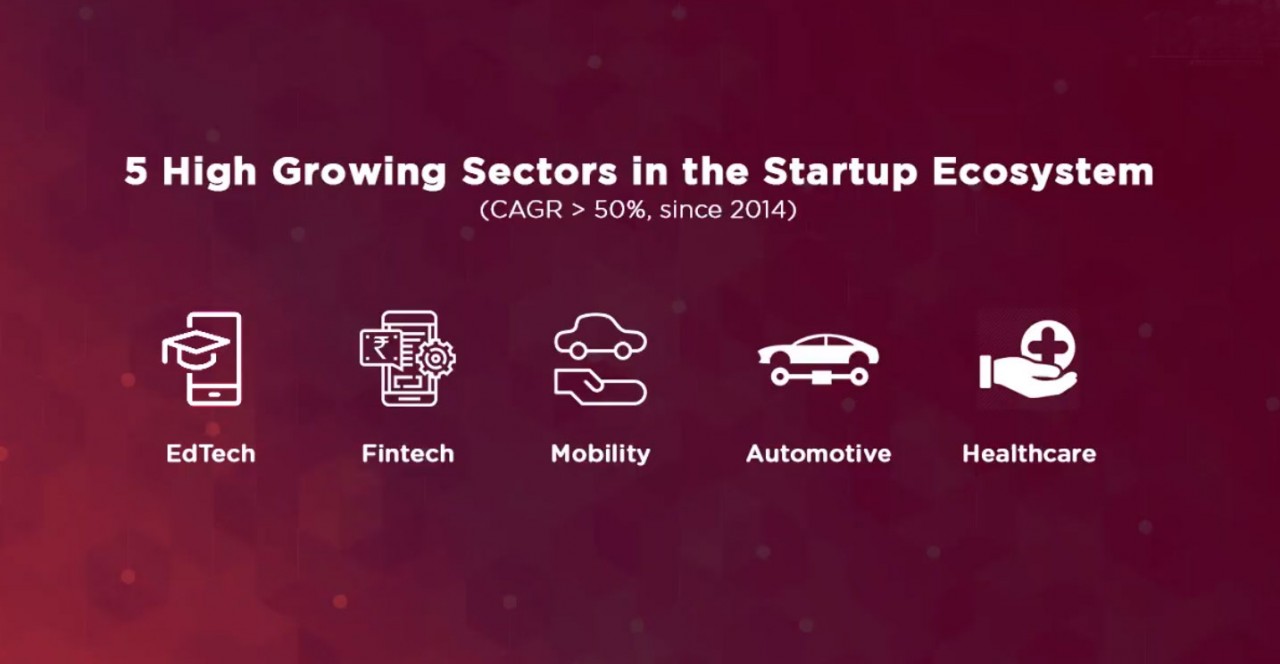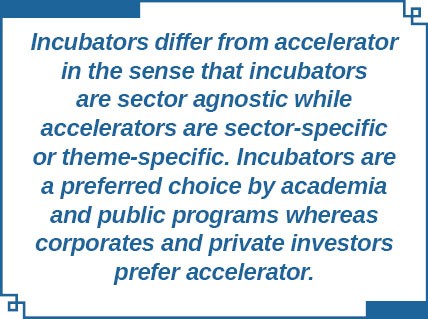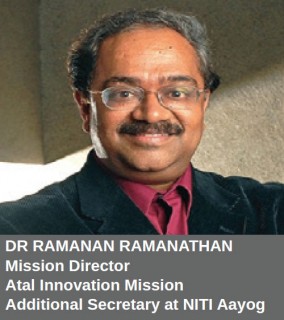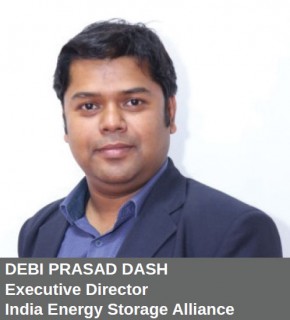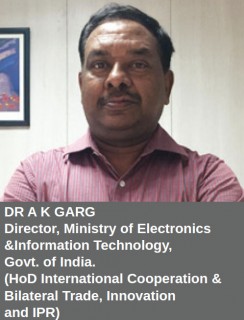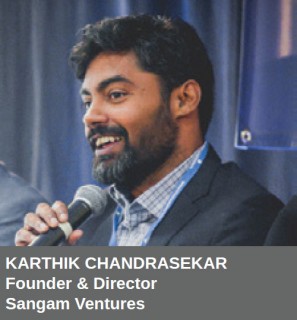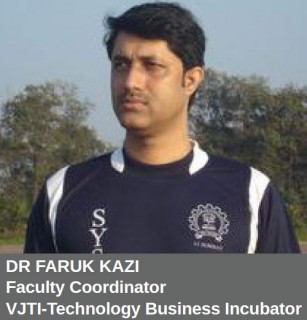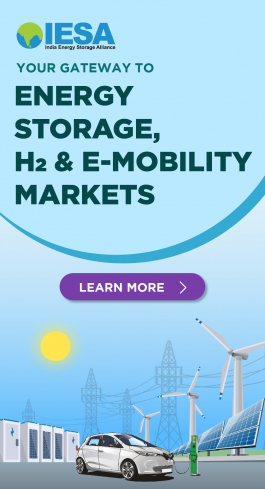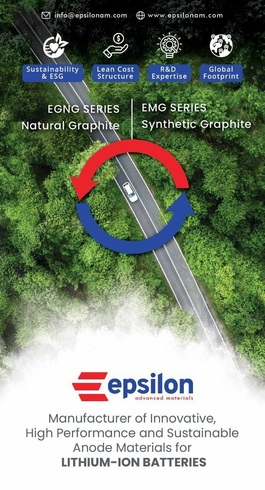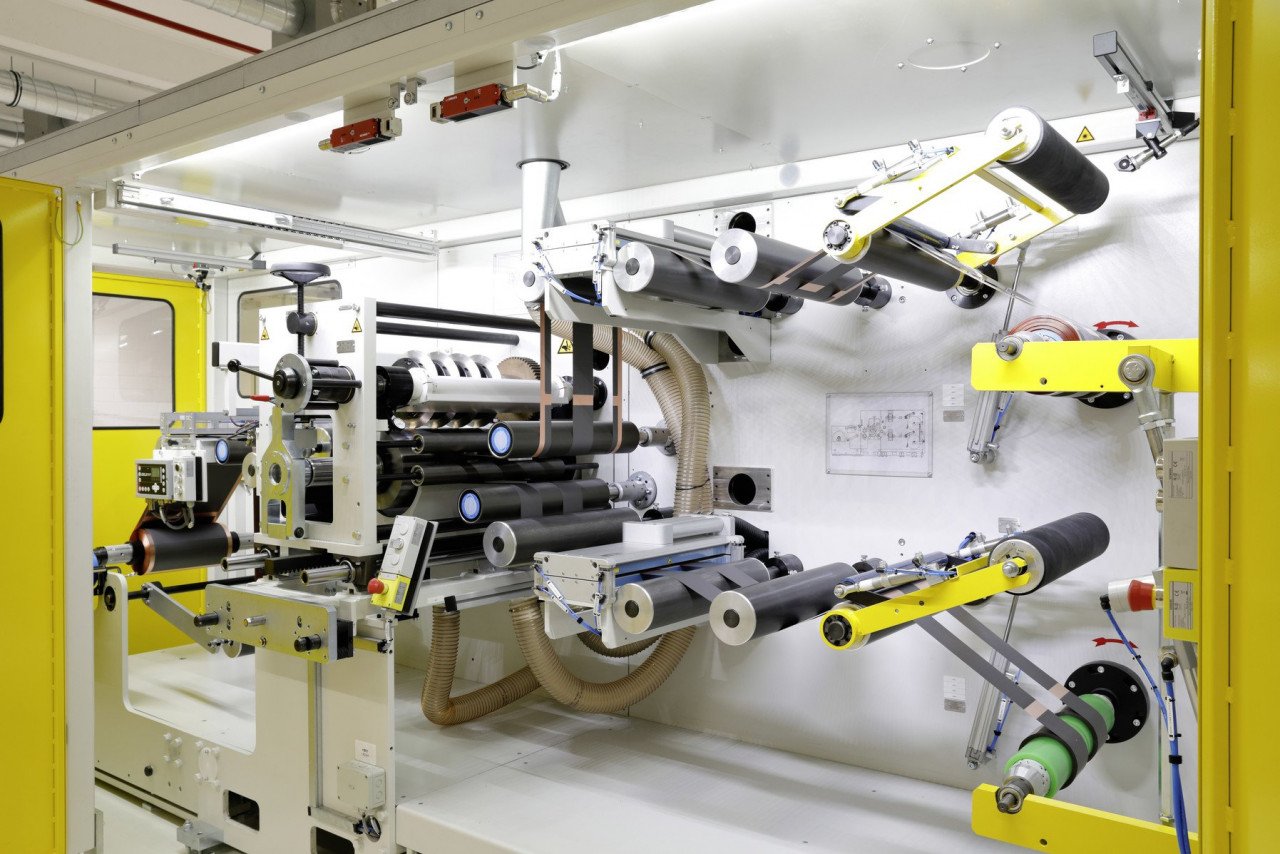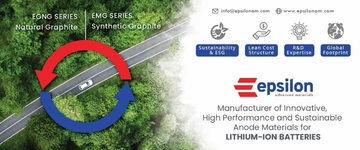Accelerators: Bringing breakthrough ideas to market
With 520 incubators and accelerators, India has emerged as the third largest country in the world in terms of active programs. Today, India has over 520 active technology incubators and accelerator programs, of which, 42 percent were added in the last five years alone.
Startups are business ventures born out of a breakthrough idea. These businesses create value for customers by providing an entirely new product or service altering the way of life, addressing locally relevant needs, and sometimes, even transforming the economy. Cultivating startups and making 'entrepreneurial culture' a top priority, therefore, is necessary for the solid foundations of any progressive economy.
And yet, the process of bringing a novel product/service to the market is not a straight-forward one. Almost every seed stage startup has to overcome a considerable degree of financial risks and roadblocks before their product/service successfully reaches the end-consumer. Recognizing this conundrum, we see that a boom in startups has coincided with the emergence of accelerators — institutions that help startups turn their innovations into commercial products.
Studies show that accelerators have significant potential to improve startups' outcomes and thereby bring benefits to the wider startup community.
Accelerator Ecosystem in India:
Simply put, an accelerator supports early-stage startups through education, mentorship, and financing for a fixed period of time and as part of a cohort of companies.
Incubators and accelerators both have played a crucial role in stimulating the startup ecosystem in India.
With 520 incubators and accelerators, India has emerged as the third-largest country in the world in terms of active programs. Today, India has over 520 active technology incubators and accelerator programs, of which, 42 percent were added in the last five years alone. [source NASSCOM].
Active policy support from the government (State and Central) has been a major factor responsible for the growth of accelerators in the country along with a heightened entrepreneurial culture. Additionally, growth has also been augmented by corporate accelerator set up as a part of open innovation initiative, development of the investor landscape, improved national digital infrastructure, and increased global exposure.
According to NASSCOM's report on "Indian Tech Startups Ecosystem: Leading Tech in the 20s" released in November 2019, the Indian startup ecosystem continues to expand with a healthy mix of sectors with entrepreneurs leveraging opportunities across sectors and markets. It further underscored that five startup sectors are growing at a fast pace: Ed-tech, Fintech, Mobility, Automotive, and Healthcare.
Significance of accelerators in the e-mobility space:
In India, electric mobility is fast gaining traction. In FY19-20, a total of 1,56,000 units of electric vehicles were sold -- recording an increase by 20 percent from the previous year's sales. Of the total EV sold in 2019-20: 1,52,000 were electric two-wheelers, 3,400 were electric cars and 600 were electric buses.
Startups are playing a crucial role in the evolving e-mobility space. Charging infrastructure, battery assembling, cell manufacturing, battery management system and mobility services are vital opportunities areas for startups. In addition to this, they are also creating new business opportunities for digital technologies like charging location finders and reservation applications, online payments, and ride-sharing services.
Reports anticipate the ensuing opportunities may be available for start-ups planning to enter the EV space in India: exploring the use of vehicle-to-grid EV charging stations, development of EV charging stations that run on solar energy and fuel cell vehicles. Furthermore, innovations in these areas will eventually lead to the entry of more players in EV markets providing services to passenger and commercial segments, comprising two, three, and four-wheeler groups.
Promoting innovation in the e-mobility space will play a crucial role in India's transition from an ICE-based vehicle to an EV dominating market, ETN magazine connected with five incubator programs/accelerators who have been reviving the startup engine across India.
Atal Innovation Mission (AIM)
About Atal Innovation Mission - Atal Innovation Mission (AIM) overarching objective is to create a facilitating environment for the transformation of ideas into innovative and impactful solutions at schools, universities, research institutions, MSME, and Industry levels across the country. Across all these levels AIM also encourages and incentivizes the transformation of innovative technologies into green mobility and energy solutions by first nurturing and creating an enthusiastic base of innovators of all age groups and giving institutional and industry support to those who are already at a higher technology readiness level.
Innovation support at school-level - The Atal Tinkering Labs (ATL) program is the flagship program of AIM through which we have established innovation labs in more than 10000+ selected schools spanning across 90 percent districts of India where we directly groom 2+ million neoteric innovators and by network and spill-over effect can bring a systemic change in the very fabric of India's demographic dividend adopting a culture of innovation. We have achieved this by creating a problem-solving innovative mindset in school students which leverages smart emerging technologies to e-mobility and energy storage solutions that are crucial for sustainable development for a country as big and promising as India. ATL-AIM system is creating a paradigm shift where young children are inculcating a problem-solving behavior by understanding the importance of Sustainable Green technology solutions giving them freedom of creative expression without a fixed curriculum. We catalyze this with our regular ATL Community Innovation days, ATL Tinkering Challenges, ATL Tinkering Fests, and ATL Innovation Marathons after training our students with specialized online and offline modules focusing on upcoming and sustainable new-age technologies like green energy and e-mobility.
Innovation support at the institutional-level - AIM has rapidly established world-class incubation facilities across the country with state-of-the-art infrastructure, that will support next-generation startups in terms of labs, coupled with the availability of sectoral experts for mentoring. Apart from this, we provide business planning support, access to seed capital, industry partnerships, training, and other relevant components required through our institutional innovation network which is hyperconnected, agile, and flexible.
Atal Incubation Centers (AICs), Established Incubation Centers (EICs), Atal Community Innovation Centers (ACICs): AIM has a network of innovation centers and incubators across major cities, innovation hubs, academic institutions, industry hubs, tier 2 and tier 3 cities and also un-served, under-served parts of the country. Necessary scale-up support and up-gradation of well-performing incubation centers to world-class standards are done to augment, enhance and upgrade their incubation capacity manifold and develop a conducive innovation and entrepreneurship ecosystem by strengthening linkages with various national and international stakeholders. Our institutional network support enables technology development, deployment, and commercialization in all sectors and makes special efforts in those sectors that are of national importance and can expedite India's transformation to a new age self-sustainable economy. It also has a strong commitment towards building a robust innovation ecosystem in unserved/underserved regions of India, throughout the complete innovation cycle from idea and research, problem-solving by design thinking, technology development of identified solutions and POCs to pilot implementation, production, market deployment, and commercialization.
Innovation support at the industry level - Applied Research and Innovation for Small and Medium Enterprises (ARISE) – AIM is at an advanced stage of its latest program launch of ARISE which aims to promote research, innovation, and job creation in the MSMEs and Startups. ARISE has been modeled leveraging the best practices in the USA, Germany, the UK in advancing small business research and innovation through which considerable innovation outcomes have significantly benefitted the industry and enabled considerable new job creation. As envisioned by the PM of India Narendra Modi, MSMEs are going to be the bedrock of the economic revival of India especially in the middle of the current pandemic. This initiative will bring about an alignment of funding opportunity, innovation, and growth needs for the primary engine of growth for our country for the coming decades.
Startups commercialized: AIM with a selection of 102 incubators covering 23+ states of the country out of which 68 are already funded have incubated more than 1500+ startups. AIM has supported 400+ of these startups to become commercialized and another 300 startups have their MVPs ready. Out of these 1500+ startups in the AIM ecosystem, 547+ startups are women-led startups which have shown AIM's long-term commitment to the inclusive and wholesome development of the country. AIM has provided more than `6 crore of seed funding to EICs which has, in turn, has enabled the startups to leverage it to `60 crore plus of funding. In addition to supporting 150+ MSMEs for business sustainability, the incubator ecosystem of AIM has generated 27,000+ jobs just in the last two years.
There are close to 70+ startups that have a singular focus on e-mobility and more than 150+ startups that are working in transport, manufacturing, and closely allied sectors to e-mobility which will help us achieve an intra- and inter-dependent synergy. Some specific areas our startups are working on are Ultracapacitors for Battery Less / Battery Assisted EVs, new designs of EVs, renewable fuel systems, filter technologies and emission control technologies, electric conversion kits, portable e-mobility solutions, automated vehicle guidance systems, new battery technologies, solar-powered robotic cleaners, and others.
Trends in e-mobility: There are primarily four trends that AIM feels will be instrumental in changing the future of mobility in India. These are vehicle electrification, semi-autonomous driving, safe sterilized shared mobility, and smart connectivity primarily disrupted by the current technological advances in the mobility sphere. Mobility is going to play a big role in India's course of development and NITI Aayog – an apex think tank of India -- in collaboration with Atal Innovation Mission has the vision, strategy, and action plan to chart that course. The emerging trends in mobility are going to open up new areas for competition and collaboration and will change the existing markets and revenue pools for market players and change the behavior and response of customers. Even though the revenue from existing avenues of revenue generation like one-time vehicle sales and aftermarket service and sales will sustain the current pace, there exists a vast opportunity in services that are poised to grow upwards of 60 percent in India. India is uniquely poised to become a leader in the world mobility space because of many reasons — India's per capita car ownership is quite low with fewer than 20 vehicles per 1,000 persons, as compared to 900 per 1,000 in the U.S. and 800 per 1,000 in Europe. India has an opportunity to leapfrog ahead of the legacy model of individually owned internal combustion engine (ICE) vehicles that are utilized by only around 5 percent of the people. India's low per capita car ownership affords it the chance to pursue a different model from the western world. Our emphasis must be on shared, connected, and electric transportation which is safety and sterilization measures in place to tide over COVID-19. Two and three-wheelers constitute almost 80 percent of India's domestic automobile sales. India must leverage this and provide impetus to the electrification of these two segments to provide size and scale to India's e-mobility efforts. India must push for public transportation to become the preferred mode of travel. At present, India has only 1.2 buses per 1,000 people, which is far below the benchmarks of developing nations. Only 63 of the 458 Indian cities have a formal city bus system and 15 cities have a bus or rail-based mass rapid transport system. Public transport must become the core focus area for municipalities and state governments. As we shift from ICE vehicles (2,000 components) to EVs (20 components) India must create a unique ecosystem to encourage and ensure Make in India as far as possible. This would require a phased manufacturing program across the entire value chain, an efficient fiscal and tax structure, and size and scale aligned to India's ambition to produce world-class vehicles for domestic and global markets. This ecosystem should also be able to attract global OEMs for manufacturing.
Batteries account for almost 40 percent of the total purchase cost of EVs today. Domestic battery manufacturing is a massive market opportunity for India to rapidly enable the transition to EVs. A recent study by Rocky Mountain Institute and NITI Aayog concludes that India has the opportunity to pursue manufacturing of both battery cells and packs while importing only raw materials. With this India can capture nearly 80 percent of the total economic opportunity. New battery technologies, like solid-state lithium-ion batteries, sodium-ion batteries, and silicon-based batteries, are under development. India needs to vigorously pursue research and development in these areas and have a clear roadmap for manufacturing on a mega scale. India's cities must build charging infrastructure to remove range anxieties, the existing network of our marketing oil companies must be fully utilized to ensure charging facilities in urban areas and highways. Another development the prospect of hydrogen-powered mobility is also worthy of special attention because of its potential importance for electrification.
The startups in our ecosystem have taken COVID-19 as a blessing in disguise because existing industry partners are increasingly focused on an Atmanirbhar Bharat and hence are looking for indigenous solutions with few imports even if it costs a little bit higher than imports. Our startups have been getting more orders and more acceptance of the testing requests at their facilities and large manufacturers are also ready to extend interest-free credit to these startups for some projects that they see as promising. With NITI Aayog's tireless support we are sure that they will be able to make a significant mark in India's E-mobility growth story.
Opportunities & challenges: The challenges faced by green innovators and warriors is lack of awareness and unfamiliarity with new policy interventions for an evolving landscape, lack of facilities and required infrastructure for prototype development and testing, high certification charges, Industry partners, and initial work contracts/orders and lack of funding for commercial deployment. In our country, there is very little support for startups working on hardware or allied products. This is primarily because these startups need patient and sustained capital and expert support to take them from the prototyping stage to a fully commercial market-ready product stage.
AIM tackles these challenges in a multi-pronged approach:
• Creating awareness through courses and webinars about green mobility and energy storage solutions and inculcating innovative mindsets at the school level and institute level e.g. ATL marathons, ATL-SIRIUS collaboration (Russia), events involving Ministry of Road Transport and Highways, Bureau of Energy Efficiency, various events hosted by our Incubators that deal with the sector like Forge, Aartech, Pinnacle. AIM is also planning to launch specialized green technology modules at all levels in the coming months.
• Sector-specific challenges at the National level; green technologies and energy storage (battery) solutions in collaborations with all allied ministries and industrial bodies that can transform India into the hub of solar power and green battery manufacturer.
• MoUs with testing and certification bodies like ARAI to enable seamless deployment of prototypes into commercial products.
• Inviting industry leaders, investors, donors, mentors, and other key stakeholders to attend the sector-specific 'Demo Days' and extend their support in the form of funding, providing access to manufacturing abilities, supply chain, and logistics or finding the right vendors/mentors.
• Collaborating with our other specialized innovation initiatives
• IDex: Innovations for Defense excellence
• Smart Cities Mission
Atal New India Challenges (ANIC) is a unique program that supports promising hardware-based startups who have the potential to have a societal impact on our large population. ANIC has been able to bring a systemic change in the government innovation system by sharing the risk which is inherent in any innovation cycle with the innovators by removal of the stifling legal compliance requirements like surety bonds to uphold the philosophy of the Grant-in-Aid Program of the Government of India. We have been able to fund companies/innovators/scholars who would have otherwise found it difficult to raise funds to actualize a deployable product. These guarantees are selected through a very rigorous procedure with multiple checkpoints by various factions of the ecosystem (including the government).
Distinct features: The major difference between AIM and other startup accelerators is that we leverage our complete ecosystem of allied ministries, 'Mentors of Change' (10,000+), private industry partners, Invest India, AGNIi, Biotechnology Industry Research Assistance Council (BIRAC), Biotechnology Industry Research Assistance Council, Department of Science and Technology (DST), Department of Biotechnology (DBT), MyGov, Startup India, and venture capitalist networks to support our startups for commercial success and scale-up. AIM works very closely with all the line ministries that are relevant to a specific startup or sector for 360-degree facilitation. Our 'Mentors of Change' program which is also the largest volunteer mentor network in India also demarcates us from other accelerators in which AIM has been a catalyst in a citizen-led national movement wherein skilled professionals provide pro-bono mentoring to young ATL innovators and AIC startups with a strong sentiment towards nation-building.
The other difference between AIM and other startup accelerators is that AIM under its initiative ANIC (Atal New India Challenge) provides a capital grant of up to `1 crore to promising startups working in select areas of agriculture, mobility, railways, education, health, water and sanitation, housing, e-mobility, power/energy, food processing. Unlike other accelerators, AIM does not take equity share or any other monetary stake in the company and the grant is provided solely for product development and enhancing its commercial readiness for the market, strictly on a milestone basis.
We also help budding startups to incubate them into our nationwide incubator network. We encourage our incubators to establish partnerships with the private sector and venture capitalist network and we facilitate that in a very big way. In this way, we ensure that our startups receive the best mentorship, guidance, and capital support to further their product development and commercialization objectives. Part of the grant given, which is up to `10 crore, can be used for seed funding. Also, there are other programs in India such as Startup India, Invest India, AGNIi, BIRAC, DST, DBT, MyGov, and AIM works very closely with them.
We have numerous partners helping us across functions like learning, outreach, and funding. We have partnered with UN bodies like UNDP (United Nations Development Fund), UNICEF (United Nations Children's Fund), UNIDO (United Nations Industrial Development Organization) to align us with global Sustainable Development Goals (SDGs). We have technology enablement partnerships with NASSCOM, Dell, IBM, Infineon, Intel, Microsoft, etc. We have event management partners like CII, FICCI, and partners like TiE, Network Capital for funding enablement needs. We regularly collaborate with Adobe, Lego Foundation, FICE, AICTE, learning links foundation for our specialized education modules and learning experience design needs.
Selection criterion: Once we receive the applications, we conduct a detailed evaluation of applications which is undertaken by a high-level committee consisting of officials having relevant expertise in the said domain(s), on a pre-decided program-specific framework.
This involves assessing the opportunity - the viability of technology to solve stated challenge, product suitability to context, integration of proposed product/solution into the relevant context, ease of large scale deployment and commercialization and risks - technology risk, market risk, people (competence, business orientation) risk, the fiduciary risk associated with the proposed solution/ innovation, and parameters like national relevance, societal impact and the expertise of team working on the project. Our startups are working on breakthrough innovations in diverse fields ranging from portable waste disposal solutions to reimagination of electric cars and the duration of our accelerator program ranges flexibly from 9-18 months during which the startup has to transition from a working prototype to a commercialization ready product. AIM is proud to say that we have an amazing portfolio of startups that will go a long way in transforming the urban and rural landscape of our country.
CES Emerging Tech Accelerator (CES-ETA)
About CES-ETA Accelerator: Customized Energy Solutions (CES) is finalizing a plan for a "CES Emerging Tech Accelerator" (CES-ETA) focused on energy storage, EV, and microgrid technologies, solutions, and services. The accelerator will be operated with active support from IESA and key industry bodies. We will formally launch the program on September 22, 2020 - the World Energy Storage Day.
The first batch would be announced at the India Energy Storage Week on November 6, 2020. Starting in January 2021, we will organize two six months Virtual Accelerator Program (VAP) to catalyze startups' growth over the years with ongoing support for 18 months.
This Virtual VAP is designed to facilitate four major objectives in the clean energy and the clean transportation sector.
• Access to market and supply chain: This is the major obstacle for growth for most startups. This will enable to develop of better product/solutions and to supply to end users/ customers (B-B or B-C), those will implement or use the products or solutions from these companies. We will try to have a minimum of 1-2 demonstration projects at the end of the program.
• Access to industry leaders through mentorship and training programs through IESA academy: Through IESA's wide presence in this industry, startups will get mentorship from the key industry leaders, who have already achieved success in this sector. IESA academy is a dedicated capacity building and training platform in the space of energy storage, EVs, and microgrids. IESA organizes various training programs throughout the year with partners like IEEMA, ARAI, CMET, and others. During the program duration, IESA will organize dedicated training programs for the startup founders and their extended team.
• Access to labs, incubation centers, and global partners network: Startups will get options to work with IESA partnered incubation centers and research labs as well as in-house CES R&D lab during the program. Through CES global team and IESA global partner network (both government and non-government organizations), startups will get global market access and benefits of central and state government support and incentives.
• Opportunity to access funding and interaction with investors community: CES will also provide the opportunity to present and interact with investors' community (Angel Investors, Equity Investors, and Fund Houses and Family Office's) during the program and also during the extension period. Through the annual IESA startups, competition cash prizes will be awarded to the winners. IESA is also partnering with different foundations, CSR funding to provide appropriate capital for the operation.
Trends in e-mobility: There is significant scope for innovation with the Li-ion ecosystem around BMS, thermal management, and packaging. Various startup companies are working on developing technology-based platforms for the energy management system (EMS), charging infrastructure, and EV Fleet management. IESA startup community includes a diversified portfolio of companies including Ather Energy, Amperehour Energy, Bounce, BluSmart, Cell Propulsion, EEE-Taxi, Grinntech, Log9 Materials, NantEnergy, Pastiche Energy Solutions, Renon, RCUBE Storage, Sun Mobility, Supriya Charging, Vision Mechatronics, VFlow Technologies, and others.
We at CES and IESA also encourage companies to explore newer technologies and solutions and to innovate in the supply chain, recycling, and EV ecosystem. Many Indian startups are focusing on alternate energy storage technologies, including sodium-ion, aluminum air, flow batteries, fuel cells, and thermal storage. We also see an additional focus by startup companies in more unique applications areas like drones, aerial transportation, and electric boats, battery-operated medical and agricultural equipment.
Opportunities & challenges: During our interactions with existing startups, they have expressed the need for the first validation stage before going to market trials. We at CES will dedicate a team for the same. CES R&D team will carry out the technology validation and guide in developing from, "Lab to Market"
Through IESA Outreach Platforms such as newsletters, social media platforms, etc. we will introduce the technology, solutions, and services to the Indian / International market.
CES team will also handhold the startups to design the market access strategy in terms of product readiness and market demand. CES will work on planning a roadmap/ pilot scale deployment of the technology at the final month to accelerate its market entry and adoption.
IESA will also host Innovation Pavilion during its annual international conference and expo to showcase startups' products, solutions, and services. IESA has organized India's premium and dedicated Startup Pitch and Startup Competition on energy storage and EV since 2013 as an annual event, where various startup companies give the elevator pitch to the investor community and key industry players. IESA investors pool is a dedicated group of highly enthusiastic and successful personalities in clean energy and clean transportation space. Most of these investors have already expressed interest in working with the accelerator.
Distinct features: CES team brings together over two decades of experience in helping startups in evaluating business models, understanding policy and regulatory frameworks as well as competitive assessment of existing and emerging technologies. CES team members have experience working on early-stage technology demonstration and commercialization efforts in the U.S. and Europe.
Using this experience and our extended mentor network, we would help the entrepreneurs to address issues that can pose challenges in the commercialization of the technology and accelerate the time to reach the market. IESA will connect these startups with the supply chain and strategic partners to support the business of the selected startups. Through this program, researchers with innovative technologies can also benefit from fabrication, prototyping, and industrial testing of their lab-scale setups.
CES-ETA will be operated with active support from IESA. With its extensive industry network and industry connect, it will enable the startup companies to accelerate their business apart from funding access. We believe in collaborative growth.
Ministry of Electronics & Information Technology, Government of India (MeitY), and India Energy Storage Alliance (IESA) have signed an MoU in September 2019 to promote Startups in the Indian energy storage and EV sector. All IESA startup member companies will be a part of MEITY Startup Hub and MeitY will support them through various schemes, the Center of Excellence, industry connects, mentorship, learning center, and other facilities.
Similarly, IESA closely works with Invest India, startup India, AGNIi (Accelerating Growth of New India's Innovations), UNIDO (United Nations Industrial Development Organization), and other government and inter-governmental bodies to bridging the gap between the government plan and industry activities. As part of this partnership, both parties will help and support the startups to grow in this space.
CES will carry out secondary market research to help startup companies through virtual boot-camp, which includes:
• Potential for technology/ solutions/ services in respective market/ doing business
• Market overview
• Opportunities for deploying the technology
• Key competitors active in the respective market
Selection criterion: CES- Emerging Tech Accelerator Program has been initiated to identify the emerging startups from the Indian and international market, who are interested to deploy in India with their breakthrough technology in the energy storage, EV, and microgrid sector. We will also support the Indian startups accessing the international market.
Eligible startups include companies operating in all type of energy storage, battery technologies [advanced lead-acid, lithium-ion, advanced lithium-ion (LTO, LiS, solid-state batteries, etc,) flow batteries, sodium-based batteries, zinc-based batteries, and others], beyond batteries (ultra-capacitor, thermal storage, mechanical storage like gravity storage, CAES, flywheel), hydrogen and fuel cell, battery components, equipment, raw materials, BMS, EMS, battery recycling, system operation, renewables (solar, wind, hybrid), EPC, project management, power electronics (PCS, controller, Inverter, thermal management), EV manufacturers, EV services companies, fleet management, charging infra, swapping, EV components, power drive, design & engineering, analytics, BTM Integrators, IT & IoT companies microgrid companies and others.
Our key selection criteria would include choosing the right team of entrepreneurs who have the passion for being game-changer and have the necessary skills to execute. Through the accelerator, we can provide the rest of the support.
The startup's call for application will be open on September 22 on World Energy Storage Day. As part of the selection process, startups will be invited to give an elevator pitch to the CES Accelerator Board on November 6, at the startup event held as part of India Energy Storage Week. The first batch will start operating from January 2021.
MeitY Startup Hub
About MeitY Startup Hub: Although the journey of the Indian tech startup ecosystem has been phenomenal in recent years, yet the ecosystem at the ground level is beset with many hurdles and challenges. Thus, to consolidate fragmented efforts, disjointed investments, and separated silos the MeitY Startup Hub (MSH) was incepted.
Today MSH, with an aggregation of close to 2000 startups, 350 incubators, 300 mentors, 22 state-of-the-art Centers of Excellence (CoEs) is a singular, dynamic, collaborative platform for the tech startup community towards building meaningful synergies in the Indian tech startup space.
MSH is closing the gap between leading ecosystem players as well as several of the MeitY initiatives to provide a unifying framework and helping innovators to work grounds-up seamlessly. Some of the leading outcome-driven programs that can be counted to making an impact include TIDE 2.0, a cohort-based accelerator program, clutch of domain-specific Centers of Excellence (CoEs), theme-based incubation centers, and a host of other initiatives — all intended to strengthen the overall tech startup development infrastructure.
SASACT (Scheme for Accelerating Startups around post-COVID Technology) is yet another initiative tailor-made for responding to the post-COVID-19 scenario emerging in the near horizon with actionable areas identified as smart/digital manufacturing including 3D printing, safety equipment, Med-tech, Ed-tech, WFH solutions, Fintech and the likes.
MSH is intricately involved with all the centers operating these initiatives, guiding and advising at every step. MSH is like a common thread connecting cross-cutting technologies, myriad talent pools, facilitating R&D cooperation, tackling complex problems to lead to the possibility of strong success rates for the startup innovators who are part of the ecosystem
Post-COVID, we will have to navigate a very different world that would rely to a large extent on new technologies that are just coming out of the labs. At the helm of such technologies would be young growth companies. Given the fact that these entities will need to navigate towards commercialization in a somehow very difficult economic environment, they ought to have a strategic advantage. MSH with its established infrastructure and well-connected network of technical expertise is geared up to play a greater role in nurturing innovation best practices and connect the missing dots.
Startups commercialized: MSH has a mandate to closely bind all the activities of MeitY-supported diverse initiatives and projects. MSH closely monitors the incubation and commercialization process of different centers.
Theme-based incubators such as Electropreneur Park with state-of-the-art facilities at Delhi University have till now onboarded 40 odd startups with 12 startups who have graduated and are in the revenue-generating phase.
Maker-Village, IIITM-Kerala, at present has approximately 80 startups that are incubated, out of which, 30 odd startups have reached the productization stage. Revenues worth `35 crores have been generated and 10 startups already graduated from the incubation center.
The incubation Center at IIT Patna with a focus on Medical Electronics has more than 30 startups onboard that are showing good progress in terms of scaling up, coming out with demonstrable products, employment generation, and IP filings. There are many other instances.
In the space of high-end semiconductor design, we have initiated a fabless chip design incubation center at IIT Hyderabad. This incubator has the objective of incubating 50 startups over a period of five years with the vision of providing one-stop service to all startups entering the space of semiconductor design.
Again, the Technology Incubation and Development of Entrepreneurs (TIDE 2.0) Scheme was approved to promote tech entrepreneurship through financial and technical support to incubators engaged in supporting ICT startups using emerging technologies such as IoT, AI, Block-chain, Robotics, etc., in seven pre-identified areas of societal relevance. The scheme is being implemented through 51 incubators through a three-tiered structure with an overarching objective to promote incubation activities at institutes of higher learning and premier R&D organizations, eventually leading to the handholding of approximately 2000 tech startups over a period of five years. The scheme also aims to provide a mechanism, whereby establishing necessary collaboration among the incubation activities to benefit them through complementary strengths.
Startups at various stages of growth and funding are having an excellent opportunity to scale up and validate efforts through programmes offered by 51 TIDE 2.0 incubation centers.
Apart from these, programs run by some of the best names in the business; a clutch of Centers of Excellence (CoEs) numbering more than 20 in diverse areas of national interest and emerging technology spaces are running programs dedicated to startups. The consolidation of these efforts is seeing substantial value addition in terms of revenue generation, employment opportunities, IPR filings, attracting VC funds in a crowded playing field. These are just a few instances of our efforts in making the commercialization journey of our startups a bit easier.
Trends in e-mobility: The transition to EV would be a watershed moment for the Indian automotive industry if it wants to retain its foothold and gain additional ground as the future of mobility is electric, shared, autonomous, and connected. Opportunities around the e-mobility ecosystem now abound with circumstances, technological capabilities, prioritization of responses conjoining together, and paving the way for accelerated adoption of EVs over internal combustion engines (ICE).
While discussions on clean fuel and zero emissions have dominated for a long time there is renewed interest and investments taking shape in the segment of e-mobility and EV in the light of the government's impetus for EV adoption and incentives in the form of subsidies and tax benefits.
Although the Indian EV ecosystem is currently at a nascent stage, however, India as a market provides a tremendous opportunity in this space with room for every player to benefit. The opportunity in the world is humungous. To support the consumer transition, we need to provide a conducive ecosystem and an enabling infrastructure that affords opportunities to apply technologies to leapfrog stages of development.
Some of the initial trends point out that product innovation is led by startups but for manufacturing, the onus would be on established players as it is a capital-intensive activity. Increasing collaboration between startups and OEMs is also on the cards.
MeitY has already launched the Automotive Center of Excellence in Autonomous/ Connected/ Electric/ Shares (ACES) vehicles at Pune to create an ecosystem for encouraging R&D, innovation, entrepreneurship in the ACES sector in India. It envisages supporting 50 innovative startups focused on creating innovative solutions for meeting the existing and emerging needs of the ACES sector over a five-year period. It will provide physical infrastructure and support services to the incubates for prototyping, developing, testing, and marketing their products and services.
It can be said that a long-term policy framework that facilitates an end-to-end ecosystem allowing continuity and attracting potential investments can really set the stage for faster adoption to e-mobility. However, incumbents of the ecosystem need to remain optimistic until EVs become a reasonably sustainable business in their quest for carving out expansion plans in a low-demand scenario.
Opportunities & challenges: Startups do not exist in a vacuum but are essentially part of the larger business perspective. Thus, the growth drivers need to be understood not only in terms of the changing technology dynamics but also on the changing attitudes on part of the government, investors, large companies, and society at large.
While initializing and operating the MSH we found that startups/innovators are faced with some unique challenges. One of the basic problems pertained to infrastructure or the lack of it. Budding startups are mostly bereft of the so-called 'conducive infrastructure' deemed necessary for ideas to thrive and scale-up. This is especially true for innovators working from tier 2, tier 3 cities of the country. Despite being touted as the growth engines of the future, the tier 2, tier 3 cities are faced with problems such as access to mentors, R&D facilities, or quality testing labs.
Another genuine problem is that of lack of early adopters of technologies and solutions. Initially, the costs of a new service or product tend to be higher as there are no economies of scale. Early-stage tech startups generally rely on early adopters for feedback on the initial prototypes of their new products. Such a critical exercise in the initial phase could help startups pivot or fail fast or succeed in the true sense. However, too a large extent investors have a propensity for risk-averse investments supporting ideas having acceptance as per ongoing investment dynamics only.
Coming to already established incubation centers such as in TIDE centers our study revealed that adequate investment in physical infrastructure development along with ensuring professional management and supervision can lead to better outcome and support to incubates; garnering funding and investment also appeared as a key point of concern for most centers.
Other problems include limited funding options, restricted access to talent pools, absence of quality mentors, lack of support hardware, few M&A opportunities, and most critically, a penchant for incubation centers to work in siloes. These were some of the challenges before MSH.
MSH apart from binding the activities of all MeitY initiatives is also acting as a platform to connect with incubators, accelerators, mentors, angel funds, and venture capitalists. A startup from a small city can now easily connect to a mentor specialized in its domain sitting in another part of the country, which was earlier not possible.
Distinct features: The tech sector and government are deeply intertwined with supportive policy frameworks being regarded as pivotal to its growth. The overarching platform of MSH in that sense is cut out for synthesizing, coordinating, and networking- crisscrossing the entire gamut of MeitY supported programs and other key initiatives taking place in the innovation ecosystem in the country. It is a platform with multi-dimensional objectives.
Here are a few unique efforts MSH has undertaken to support tech startups in the country:
• To provide startups from India and other countries with soft-landing opportunities, MSH has inked partnerships with leading names in the innovation industry to setup exclusive Launchpads. As part of the initiative, mutual soft-landing platforms for startups from India and other countries were planned.
• Corporate-Startups Connect-Platforms - Devised with leading industries, startups under MSH can look forward to being nurtured by corporates, access their infrastructure such as testbeds as also get a taste of new markets. Industries in return can be privy to startups working in cutting-edge technologies dishing out innovative solutions for them to adopt. It is a win-win situation.
• Partnership - Some of our valued national and international partners include India Energy Storage Alliance (IESA) U.S. India Strategic Partnership Forum (USISPF), Confederation of Indian Industry (CII), HSBC, Qualcomm, Innovate the UK, PayPal among others. Discussions are on with many other players.
• Grand Challenges - MSH is instituting "Grand Challenges" to drive new tech-driven business models and rapidly scale up the prototyping of technologies. It is a scenario where MSH can scan new and disruptive innovation ideas coming out from startups and accurately profile emerging technology landscapes while startups in turn receiving funding and recognition.
• MSH platform gives dedicated webpages to startups, incubators, mentors to showcase their enterprise and expand their network. Startups especially are listed according to their area of expertise or the state, they belong to and help them connect to incubation centers, seek guidance from mentors, benefit from government schemes, access recent program details, and avail of R&D facilities and test labs. Also, all the MSH-supported startups working in the technology area are privy to avail of international patent filing incentives from MeitY.
• MSH also has a mandate for capacity building of different tech incubation centers pan India, capitalizing on strengths of different centers to pull out moderately weaker centers into a mainstream activity. At the core of all these initiatives is our strong determination to transform startups into worthy enterprises of tomorrow apart from seeding the tech ecosystem.
Selection criterion: MSH as a platform has been truly democratic. For wide coverage and maximum participation across all levels, startups without much restriction are given maximum encouragement to apply. Thus, apart from the Department for Promotion of Industry and Internal Trade (DIPPT) recognized startups, technology incubation enterprises or startups located in incubation centers/ parks all MeitY supported startups under its various initiatives or for that matter ICT startups meeting certain conditions can be part of the MSH.
The duration of the engagement is dynamic depending on the particular program to which the startups are attached. The MeitY Startup Hub, however, has an initial mandate of five years. The journey of MSH is much more than a startup program it is a change agent to connect the mainstream industry players and the innovators and disruptive technological solutions getting converted into piloting opportunities.
Sangam Ventures
About Sangam Ventures: Sangam Ventures is a thesis-driven fund. It studies the sector, customers (and the non-customers), the gaps in the technology roadmap, and latent for driving comprehensive sustainable solutions before venturing into or supporting any startup in that sector. Sangam Ventures strongly believe in the need for energy storage innovations to permit the energy transition to a decentralized and decarbonized future-it has investments in two startups, Inficold India and Delectrik Systems that are developing local battery storage solutions that can help India in transforming its energy landscape. The early-stage venture fund has also invested in SolShare, a startup based in Bangladesh, that is working on the future of the energy grid, utilizing the excess power in decentralized solar systems by trading power over a peer-to-peer grid.
The venture fund has published its electric vehicles (EV) thesis in April 2018 that represents a picture of how India can catapult to an electric mobility future. The thesis pushed the venture fund to capitalize on Cell Propulsion, a startup building a local heavy electric vehicle from the ground-up. As a next step, the venture capitalist is looking for startups that can take the electric powertrain to the rural markets. It is also supporting startups with innovative business models and a focus on data analytics that can bring down the life cycle cost of ownership of the electric vehicle. The venture capital (VC) fund is seeking to work with a small group of dedicated and passionate founders who represent some of the best STEM talents in the country and support their startups to achieve product-market fit and prepare them for scale.
The trajectory of startups is non-linear but, the work to develop the community is not. To develop the community around clean technologies, Sangam Ventures with the support of the Atal Innovation Mission (AIM), Niti Aayog, launched the AIC-Sangam Innovation Foundation, which houses all of the incubation and acceleration work the venture fund does. AIC-Sangam's mode of engagement to build community is based on three pillars: Talent, Capital, and Community. The incubation program works with startups in their ideation to the prototype stage, providing state-of-the-art prototyping infrastructure and one-on-one dedicated mentorship from the in-house team and sectoral experts.
Hardware startups have an extensive incubation period; hence the incubation program is for three years. The foundation is supported by organizations like Infineon, Autodesk, Dassault, and MathWorks in its work. The acceleration programs are time-bound and for facilitating startups who are close to commercialization and looking for assistance with scaling up. Apart from an in-house thesis-driven acceleration program, the Emerging India Acceleration Program, the third iteration, coming in August, will be dedicated to conservation agriculture. The foundation is also running acceleration programs in partnership with the United Nations Industrial Development Organization (UNIDO), the Facility for Low Carbon Technology Deployment (FLCTD) Low Carbon Accelerator, where it will be announcing a COHORT of 25 top of the class seed-stage startups shortly and with the World Resources Institute (WRI), the Land Accelerator, which has COHORT of 15 remarkable startups focused on land restoration.
Startups commercialized: AIC-Sangam (the sister organization of Sangam Ventures) is an Atal Incubation Center and has worked with over 50 startups so far through incubation and numerous acceleration programs. Adding to that, Sangam Ventures has capitalized on eight companies to date. The investment portfolio is a mix of clean energy, electric vehicle, energy storage, energy efficiency, and the agriculture sector.
The organization has two energy storage startup in the portfolio:
• Inficold has developed a first-of-its-kind, retrofittable, high-efficiency thermal energy storage solution for cooling applications. Inficold partnered with the National Institute of Solar Energy (NISE) to develop additional internet protocol (IP) for the off-grid market. It is taking decentralized, uninterrupted, and inexpensive cooling to where it hurts the most – in the dairy, horticulture, and cold-chain logistics market and counts some of the largest dairies as customers, including Mother Dairy, Nestle, Schreiber, Nandini Milk, and several North-East states. They have also installed off-grid cold storage and solar air conditioners across the country.
• Delectrik has commercialized a low-cost, long-duration vanadium redox flow (VRF) battery that is a perfect solution for demand-side and on-grid energy management, capable of working in harsh and remote environments in India with relatively negligible maintenance and 100 percent recyclable materials. The company, part of AIC-Sangam's maiden acceleration cohort, EIAP-1 has deployed around 300kWh and looking to the developed markets when the utilities are more mature for the initial sales.
The other energy startups in the portfolio are:
• ME-Solshare works on interconnecting existing decentralized Solar-PV generation and storage assets, linking producers, consumers, and prosumers into smart-grids enabling peer-to-peer (P2P) energy trading. They started operating in Bangladesh and ventured into India with AIC-Sangam's maiden acceleration cohort, EIAP-1. They installed 569 SolBoxes in 25 Sol-Grids (2 in Assam, IN) impacting 3,000 beneficiaries, reducing 165 TCO2e GHG emissions & unlocking 74 MWh of clean energy.
• Khethworks's highly efficient portable solar pump design is optimized to give farmers the flow required for surface and dug-well irrigation with less than 300 watts of power and payback in 2 years. The pump can displace close to 300 Kg of CO2e per annum by replacing inefficient kerosene pumps. The company, which was part of AIC-Sangam's maiden acceleration cohort, EIAP-1 is on track to sell its first 300 pumps this year.
• Cell Propulsion is developing a proprietary HEV powertrain (up to the gross weight of 16tons) with slow and fast charging capacity. It is currently running a pilot to convert a diesel bus into electric for Bangalore Metropolitan Transport Corporation (BMTC_ and focused on commercializing an e-LCV for the urban logistic market.
Trends in e-mobility: The present entrepreneurial and investor ecosystem for e-mobility is driven by e-commerce logistics and shared mobility. Private players like Ola, Amazon, Delhivery, and Micelio have shown the way to bring in an electric fleet for last-mile delivery within a specific radius of operation. Within this space, the innovation is mostly around the technology enveloping the Li-ion battery. As per Bloomberg, battery cost is expected to fall to US$ 100/kWh from the present US$ 156 / kWh when the cumulative demand reaches 2TWh of capacity. The energy density (kWh/kg) and the form factor while maintaining safety and affordability for EV batteries is the key focus area.
Most of the startups are working on innovations in Battery Management systems (BMS), and Telematics that can monitor, manage, and hopefully enhance the life of Li-ion batteries. Motors will also play a critical role especially as the industry looks to reduce its reliance on China where possible. Currently, Brushless DC (BLDC) and Permanent Magnet Synchronous Motor (PMSM) motors are used for EVs. The organization expects efficient motor controllers, innovations in motor design (like axial motors) and motors with regenerative braking systems will drive new players in this segment. Innovation in drivetrains, new battery chemistries, materials, and design and fuel cell innovations need to come up to drive the adoption of EVs across the market. For charging and swapping stations, innovations need to happen in business models apart from the technology itself. Operational lease, PAY-G models, and subscription models will drive this sector. At the infrastructure-level, we believe that DC fast charging will play a critical role in inter-city transport while for intra-city both will play their role.
In its report, the organization has shown how EV adoption might happen in Tier-II/III cities and rural markets. It sees a strong consumer demand-led growth of EVs in these markets with small towns and cities with small and younger populations leading the way. We expect this to go hand in hand with the spread of decentralized renewable energy and storage. We are hoping to see fast charging (<1hr) capabilities with high energy density batteries with smarter energy management systems for not just EVs but also behind-the-meter home appliances which will transform the DRE and EV market as a whole.
Challenges & opportunities: The challenges of the innovators depend on the stage and type of innovations. Most hardware innovators need technology authentication assistance as well as customer feedback. Innovations validated at the lab scale need primary adopters for in-field testing before moving to commercialization.
Lack of access to product development infrastructure outside of engineering colleges and industry, early adopters, and capital for product development are the key hurdles these innovations face. Startups that pass this stage need licensing and certifications (particularly in the electric mobility sector) along with corporate partners to do commercial pilots at scale. Most software-based innovations typically don't have to face such tough barriers as the incubation period and iterations requisite for validation but the low-scale EV penetration hinders the piloting capability with a meaningful number of users.
The organization provides product development assistance through prototyping lab infrastructure and free access to prototyping software like Autodesk, SolidWorks, and MathWorks, which help them reach their proof of concept. Access to its in-house startup network helps these innovators to conduct pilots on the ground as their up-stream or down-stream partner creating a vibrant ecosystem of cleantech entrepreneurs. Alongside in-house mentorship and access to grant funding (from their own programs or by referring them to in-house ecosystem partners) the organization helps these startups come to a point where they can become investment-ready for equity infusion. Being associated with Niti Aayog gives an edge to connect them with several policymakers which helps them understand the market scenario and get access to numerous licensing / testing (ICAT / ARAI) processes required.
Distinctive features: Sangam Ventures is the first and primary fund, it does acceleration to develop an investment pipeline and to build the low-carbon innovation eco-system. The early-stage venture fund spends a lot of time making sure that the startup and founders work with understanding the science and the numbers behind their approach to climate change mitigation or adaptation. The organization is a continuously learning organization and is always open to working with startups that want to take a new approach to solve a stubborn problem in the clean technology sector. If it is aligned on the hypothesis and values (inclusive and sustainable), it will work with a startup founding team as they figure things out along the way. The organization is very hands-on, and wants its companies to be either working on an engineering problem or spending time with the customer to get to know them, so, it spends most of its time where the startups are in the field.
The organization has had the opportunity to work with some amazing partners who have helped us in creating value for clean technology entrepreneurs. It had a long-term informal relationship with UNIDO (United Nations Industrial Development Organizations) which through its partnerships with Government of India ministries like Ministry of Micro, Small and Medium Enterprises (MSME) and Bureau of Energy Efficiency (BEE) has helped close to 100 startups find their first customers and investors some of which are now part of the Sangam portfolio. The organization has gained a lot of new connections and meaningful partnerships through the Atal Innovation Mission, NITI Aayog, and the team at Startup India and Invest India which are made the organization see the working of the government in a new light - entrepreneurial. Last but not the least, the organization is exceptionally grateful for some of the best sponsors in the climate change and innovation ecosystem, Shell Foundation, and United States Agency for International Development (USAID) in the past, and the Stitching DOEN and Good Energies Foundation.
Selection Criteria: Sangam Ventures work with both national and international startups working in the climate change space. For its acceleration program, the organization favors startups who already have a working prototype or a service model with some early adopters or who have reached product-market fit and looking to scale. Generally, it prefers to work with startups not more than 5 years old in its acceleration program. The goal is to generate a pipeline for investment-ready startups for Sangam and its ecosystem investors to capitalize. The acceleration program is typically between 4-9 months long and it can longer if need be. The organization will continue to work with its startups beyond program boundaries until it can get them to their next milestone and choose to pivot. The incubation program is for early-stage startups in their ideation or prototype stage. For incubation, the organization prefers startups having a technical founding team and preferably less than two-years-old. Looking at the high incubation period, the organization has kept the tenure of three-years for its incubation program. The incubator doors are always open for talented and passionate founders wanting to make an impact.
VJTI-TBI
About VJTI-TBI: VJTI Technology Business Incubator (VJTI-TBI) was lately established at the esteemed Veermata Jijabai Technological Institute, Mumbai with the support of DST, GoI under the NIDHI-TBI Scheme. The incubator presently supports startups working in the fields of energy, EV, IoT, AI/ML, and cybersecurity under the incubation program.
Startups at VJTI-TBI also get access to open tools comprising AWS credits, ZOHO platform, Zendesk CRM, SOLIDWORKS licenses, MatLab and Simulink licenses, and MyOperator cloud telephony credits.
All nominated startups under the program are delivered with co-working space, access to state-of-the-art lab infrastructure equipped to test products, and prototypes in the areas mentioned above. Besides, it also provides advisory services in business management, IPR, finance, and accounting, legal and technical domains through alliances with third-party service providers and industry associations.
Startup commercialized: At present, VJJTI-TBI is supporting 17 startups working in the fields of energy, EV, IoT, AI/ML, and cybersecurity under our COHORT-1. These startups are across various stages of growth, i.e. ideation to revenue stage. A few startups in the cohort can boast of touching revenues of up to 1 crore while other startups have won national and international honors in several innovation-based competitions and challenges. The startups under COHORT-1 are presently offering both products and services that are innovative and technology-driven and are certainly going to make a mark in their germane markets.
Trends in e-mobility: Since an electric vehicle is an embodiment of several technologies, growth in the EV and electric mobility ecosystem has generated innovations in many fields including battery technology, fuel cell stack, motor controller, DC/DC converters, hybrid technologies, charging technologies, and IoT-based EV data analytics for predictive maintenance.
Numerous market research reports expect that for India the following opportunities may be accessible for startups planning to enter this space: exploring the use of vehicle-to-grid EV charging stations, development of EV charging stations that run on solar energy, and fuel cell vehicles. Additionally, innovations in these areas will ultimately lead to the entry of more players in EV markets providing to passenger and commercial segments, comprising two, three, and four-wheeler groups.
Challenges & opportunities: Most of the incubated startups fall under the early stage category and it is likely they face several stages at this point in their commercial journey. The key challenges include cash flow management, marketing strategy, raising capital, building an effective team, and finding customers.
To help the startups deal with these challenges positively, VJTI-TBI has associated with several stakeholders in the above-related domains to help the entrepreneurs tide the difficult part of the journey in their early years. These stakeholders comprise experts from the industry in relevant domains and investors from venture capitalist (VC) firms and angel groups and other entities who have approved to come on-board with VJTI-TBI as mentors and help them resolve the challenges faced by these entrepreneurs.
Distinctive features: VJTI-TBI is generating a niche ecosystem focused on supporting startups in the areas of energy, EV, IoT, AI/ML, and cybersecurity. Apart from the numerous benefits and resources provided to startups, VJTI-TBI is providing the startups with a state-of-the-art lab infrastructure for developing and testing prototypes.
VJTI-TBI also delivers the nominated startups with access to the Center of Excellence (COE) set up at VJTI, which is established with the support of the Department of Science and Technology (DST), Government of India (GoI). The COE is well equipped with SCADA & Automation Lab, Power Electronics Lab, and AI/ML and Embedded Systems Lab equipped with state-of-the-art equipment used in the industry. VJTI-TBI has also associated with several corporates (LTI, Emerson, NVIDIA, Siemens, and CISCO) and industry bodies (IEEMA, SIDBI, Cyber Peace Foundation, IET, and ISGF) to provide support to the startups either through mentoring, infrastructure support (comprising lab infrastructure) and seed funding through corporate social responsibility (CSR) support.
Selection criteria: VJTI-TBI has a demarcated process for selecting the startups for the incubation program. The incubator looks for startups working on an innovative idea/ technology/ product/ service in one of the thematic areas including Cleantech, Energy, IoT, Cloud Computing, and Cyber Security.
It also supports startups that are in the initial stage of growth and revenue and must be keen to trail the incubation program full time with no other parallel obligations during the incubation period. It also looks at startups who will preferably have a market-ready prototype or Proof-of-Concept (PoC) and a clear IP strategy and a technology commercialization plan that will generate jobs.
Lastly, the startups must have a robust business proposal, must be able to positively pitch to investors and raise funds, must be able to scale-up and become self-sustainable in 18-24 months.


